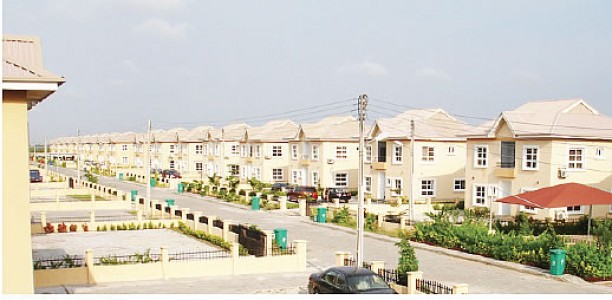Unless government, through the regulatory agencies, comes up with a major policy decision that will arrest the crisis looming in the mortgage sector of the financial system, more Nigerians who could have built or bought their own homes through mortgage will remain ‘homeless’, experts have said.
Feelers from the sector reveal that as at December last year, about 15 of the 36 primary mortgage banks (PMB) were not able to pay their insurance premium contribution over liquidity problems which the experts say reflects operational challenges in that sector.
One of the primary mortgage banks (PMBs) is said to be unable to meet its obligations to depositors and this has raised fears of possible collapse of the sector which will spell doom for mortgage banking customers and the entire financial system.
Former managing director and chief executive of Refuge Homes, Sola Olubode, notes that situations like these explain the low mortgage contribution to GDP at 0.12 percent, as against 63 percent in the US; 64 percent in Britain; 55 percent in Germany; 15 percent in Thailand; 20 percent in South Africa; 5 percent in India, and 3 percent in Ghana.
Nigeria’s low home ownership level at a little above 10 percent, where US has 72 percent; UK, 78 percent; China, 60 percent; South Korea, 54 percent, and Singapore, 92 percent, he says, can also be traced to the liquidity issues in its mortgage sector, which limits access to mortgage loans.
The concern raised by the looming crisis in this sector is deepened by the fact that it is not long ago that liquidity problems led to the consolidation and recapitalisation of the sector, reducing the 83 primary mortgage banks at the time, to 36, a few of which were recently refinanced by the Nigerian Mortgage Refinance Company (NMRC).
The PMBs inability to pay their premium is all the more critical, as each depositor in a mortgage bank is only insured to the tune of N500,000, meaning that in the event of collapse of the sector, customers would be in for trouble, more so as the Nigeria Deposit Insurance Commission (NDIC), the insurer, says its capacity to sustain efforts at ensuring that insured institutions are put on the path of sustainable growth and development, depends largely on the premium contribution, which is an amount paid periodically by the mortgage banks for covering their risk.
Umaru Ibrahim, managing director of NDIC, was quoted as saying that the inability of as many as 15 PMBs to pay the insurance premium as at December 2016 was an unfortunate situation, capable of putting customers at higher risk.
In an earlier report, BusinessDay had noted a contraction in access to housing finance, following a 31.8 percent decline in loans and advances from the PMBs. The loans and advances extended by these PMBs declined significantly by 31.87 percent, to N168.96 billion in 2015 while unpaid premium from nine PMBs amounted to N238.30 million the same year.
Operators have however, attributed these developments to the economic downturn, which has in the past 18-24 months, been the bane of most businesses and the economy at large. They add that they are also challenged by the issue of recession, which has made governments unable to pay salaries and because of that, those who have mortgage loans to pay are defaulting.
“You cannot report those who are defaulting to their office because the fault is coming from them and this is a discouragement to us”, says Adeniyi Akinlusi, MD/CEO, Trustbond Mortgage Bank.
Akinlusi further said, “there are macro-economic issues such as inflation, which is eating into the salaries of workers and even bank deposits; falling oil prices, depleting oil reserve, and falling value of the naira, are also big issues for the mortgage sector”.
He noted that the mortgage industry in the country has been having liquidity challenges which was why the Federal Government in January 2014 established the NMRC, the aim of which is to bring liquidity into the mortgage system by refinancing mortgages originated by the PMBs with money raised from the capital market.
The company has gone to the market to raise N8 billion, but has been able to refinance a few PMBs, including Imperial Homes Mortgage Bank, Homebase Mortgage Bank, Trustbond Mortgage Bank, and Sun Trust Mortgage Bank.
“Other mortgage banks are finding it difficult to access this fund because of the high interest rate which NMRC demands from them”, Femi Johnson, a director in NMRC and the CEO, Homebase Mortgage, disclosed to BusinessDay in an interview.






